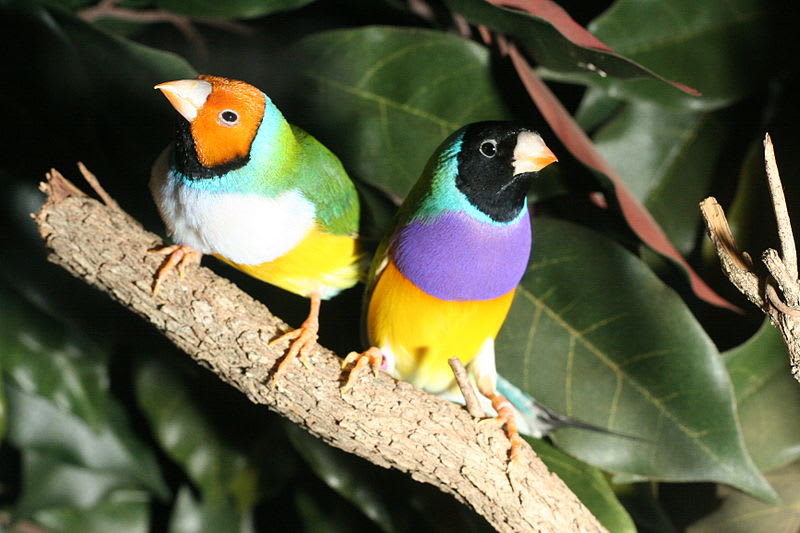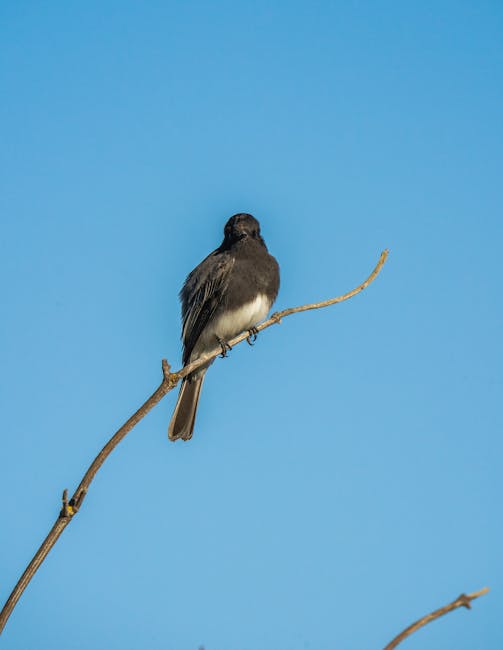Have you ever wondered what makes songbirds so special? If you’re curious about the birds you see every day, understanding what a passerine bird is will open up a whole new world.
These birds aren’t just pretty to watch—they play a big role in nature and your surroundings. Keep reading, and you’ll discover surprising facts that will change the way you see the birds outside your window.

Credit: www.facebook.com
Passerine Bird Characteristics
Passerine birdshave small to medium bodies with a light build. Their feathers are soft and smooth, helping them fly easily. They usually have short, strong beaks for eating seeds and insects.
- Foot Structure:Their feet have three toes pointing forward and one backward. This helps them grip branches firmly.
- Vocal Abilities:Passerines are known for their singing skills. They have a special voice box called the syrinx. It lets them make many different sounds.

Credit: www.instagram.com
Types Of Passerine Birds
Songbirdsare known for their beautiful and complex songs. They use songs to communicate and attract mates. These birds have a special voice box that helps them sing well.
Swallows and Martinsare small birds with sleek bodies and long wings. They are excellent flyers and often catch insects in the air. They build nests from mud on walls or cliffs.
Finches and Sparrowsare common birds found in many places. They have strong, cone-shaped beaks perfect for eating seeds. These birds often visit gardens and parks.
Habitat And Distribution
Passerine birdslive in many places worldwide. They are found on every continent except Antarctica. Their global presenceis vast, from forests to cities.
They prefer different environments. Some like dense forests. Others live in grasslands or wetlands. Many passerines adapt well to urban areas and gardens.
Migration is common in passerines. Some travel long distances between seasons. This helps them find food and better weather. Others stay in one place year-round.
Diet And Feeding Habits
Passerine birds eat a variety of foods like seeds, insects, and fruits. Their diet changes with the seasons to meet their energy needs. These birds often catch insects on the wing or forage on the ground for seeds and berries.
Insectivores
Many passerine birds eat insects. They catch flies, beetles, and worms. These birds have sharp beaks. They use them to grab fast-moving prey. Some even eat spiders. Insectivores help control insect populations.
Seed Eaters
Seed eaters love grains and seeds. They have strong beaks to crack shells. Sunflower and millet seeds are favorites. These birds often visit gardens. Seed eaters play a role in spreading plant seeds.
Omnivores
Omnivores enjoy a mixed diet. They eat both plants and animals. Fruits, seeds, and insects are common meals. Their diet can change with seasons. Omnivores are adaptable and can thrive in many environments.
Breeding And Nesting
Passerine birdsshow diverse mating behaviors. Many sing songs to attract mates. Some perform dances or displays. Pair bonds may last a season or several years.
Nest constructionvaries by species. Some build cup-shaped nests in trees. Others use holes in wood or ground. Materials include twigs, leaves, mud, and feathers. Nests protect eggs and chicks from danger.
Raising offspringis a team effort. Both parents often feed and guard the chicks. Young birds grow fast and leave the nest in weeks. Parents teach them how to find food and fly.
Role In Ecosystems
Passerine birds help plants grow by moving pollen and seeds. They visit flowers to eat nectar, which spreads pollen. This helps plants make fruits and seeds. Many trees and flowers need this to live and grow.
These birds eat many insects that harm plants. By eating bugs, they protect crops and gardens. This natural pest control reduces the need for chemicals.
Passerines also act as indicator species. Their presence shows a healthy environment. If their numbers drop, it may mean pollution or habitat loss. Watching these birds helps us know if nature is well.
Challenges And Conservation
Passerine birds face habitat loss and climate threats, making their survival tough. Protecting forests and wetlands helps conserve these small, singing birds. Conservation efforts support their role in nature and keep ecosystems balanced.
Habitat Loss
Passerine birds face serious threats due to habitat loss. Forests and grasslands are cleared for farming and cities. This leaves birds with fewer places to live and find food. Many species struggle to survive as their homes disappear.
Climate Change Impact
Changes in weather patterns affect passerine birds greatly. Some birds migrate earlier or later than usual. Food sources may become scarce or shift to new areas. These changes make it hard for birds to adapt quickly.
Conservation Efforts
- Protecting natural habitats by creating reserves and parks
- Planting native trees and plants to restore bird homes
- Researching bird behavior to understand needs better
- Raising awareness about protecting passerine birds

Credit: owlcation.com
Frequently Asked Questions
What Defines A Passerine Bird?
Passerine birds have three toes pointing forward and one backward, aiding in perching and gripping.
Why Are Passerine Birds Called Songbirds?
They are called songbirds because many can produce melodious and complex songs.
How Many Species Of Passerine Birds Exist?
There are over 5,000 species of passerine birds worldwide, making them the largest bird group.
Conclusion
Passerine birds make up the largest group of birds worldwide. They have small feet and strong legs for perching. Their songs and calls vary widely, making them unique. Many live in forests, gardens, and cities. Understanding passerines helps us appreciate nature more.
Watching these birds can bring calm and joy. Their presence shows a healthy environment. Learning about them connects us with the natural world. Passerine birds truly enrich our daily lives.
